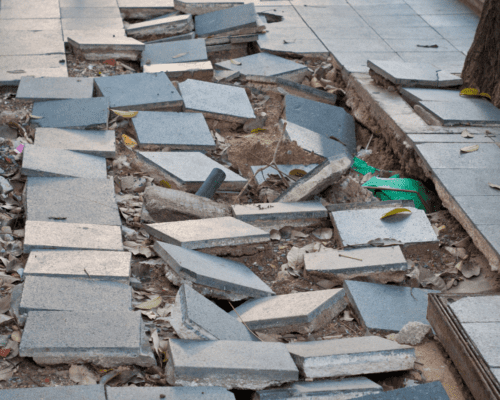The Most Common Types of Premises Liability Accidents

Premises liability refers to the legal responsibility of property owners to maintain safe conditions on their premises. It holds them accountable for injuries or accidents due to negligence, such as slip-and-falls, inadequate security, or hazardous conditions. Property owners must take reasonable steps to prevent harm to visitors or tenants, and if they fail to do so, they may be liable for damages.
Accidents due to defects and hazardous conditions on someone’s property can result in severe injuries and damages. If you’ve been injured due to a property owner’s negligence, seeking legal representation can help you pursue the compensation you deserve.
Slip-and-Fall Accidents
Slip-and-fall accidents are among the most prevalent premises liability incidents. They occur when individuals slip or trip on a property due to hazardous conditions. Common slip-and-fall accidents include:
- Wet or slippery floors are often caused by spills or inadequate cleaning.
- Uneven or damaged flooring, such as loose tiles, cracked pavement, or torn carpeting.
- Snow or ice accumulation on walkways, especially in colder climates.
- Poor lighting can make it difficult to see obstacles or changes in elevation.
- Clutter or obstacles in walkways, including loose cables, debris, or merchandise in aisles.
- Lack of warning signs fails to alert individuals to potential hazards, increasing the risk of slip-and-fall accidents.
Negligent Security
Negligent security refers to situations where property owners fail to provide adequate security measures, harming visitors. Five common scenarios that may qualify as negligent security include:
- Inadequate lighting in parking lots, stairwells, or building entrances makes it easier for criminals to hide or assault.
- Failure to install security cameras or alarms in high-risk areas leaves the premises vulnerable to theft or vandalism.
- Lack of proper security personnel or procedures, such as failure to screen visitors or monitor access to restricted areas.
- Broken locks or malfunctioning security gates allow unauthorized individuals to enter the property.
- Failure to respond promptly to reports of suspicious activity or previous security incidents, neglecting to take preventive measures.
Property owners may be held liable for damages resulting from criminal activities on their premises due to insufficient security measures.
Collapsing Ceilings and Structural Failures
Collapsing ceilings and structural failures can result from various factors, including structural defects and water damage. These structural defects can pose significant risks to individuals on the premises. They may result in slip-and-fall accidents, trip hazards, and severe injuries if not promptly addressed by the property owner or manager:
- Faulty or inadequate lighting in stairwells, corridors, or parking lots.
- Faulty or missing handrails on staircases or balconies.
- Defective or poorly maintained escalators or elevators.
- Weak or unstable structures, such as rotting support beams or collapsing ceilings.
- Improperly constructed or maintained guardrails on elevated platforms or walkways.
Property owners and managers are responsible for ensuring the structural integrity of buildings and addressing any signs of deterioration promptly.
Retail Store Incidents
Slip-and-falls, inadequate security accidents, and structural failure accidents can all occur in a retail store and are often the result of negligence on account of the property owner, manager, or both. These types of accidents are unfortunately common and can leave victims with life-altering injuries. Some more examples include incidents involving falling merchandise or poorly maintained walkways. Retailers must maintain safe premises for customers and promptly address any hazards.
How Is Liability Determined?
Factors considered include the property owner’s negligence and whether they breached their duty of care. Property owners can be held liable for injuries sustained on their premises if they fail to maintain safe conditions or promptly address hazards. An experienced Houston premises liability lawyer will identify any negligence or breaches of duty that contributed to the accident, ultimately determining the responsible party and building a strong case to pursue compensation for your injuries and losses.
To establish liability, your Houston personal injury attorney will assess various factors related to the accident. This process typically involves investigating the circumstances surrounding the incident, examining the property conditions, and reviewing maintenance records. By analyzing these elements, your attorney can determine whether the property owner or manager failed to maintain a safe environment, causing your injuries.
You Need a Houston Premises Liability Lawyer You Can Trust—Choose DK Law
If you’ve been injured in a premises liability accident in Texas, we want to hear what happened. Our Houston legal team is here to guide you through what can often feel like an intense and overwhelming legal process. We will take the reins on your case and skillfully handle matters like gathering evidence to support your claim and negotiating with insurance companies.
Let’s hold negligent property owners accountable—call DK Law at (281) 402-8856 to schedule a free consultation today.